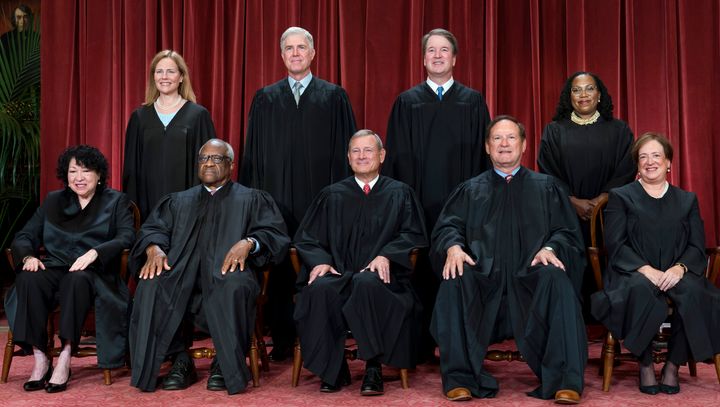The U.S. Supreme Court’s decision to overturn abortion as a constitutional right was naive and leaves “too many questions,” former Justice Stephen Breyer reportedly said in a recent interview that characterized the court as taking a wrong turn but a restorable one.
“There are too many questions,” Breyer told The New York Times about the lingering effects of the court’s 2022 decision in Dobbs v. Jackson Women’s Health Organization, which entrusted states with the right to outlaw or reduce access to the medical procedure. Breyer was among three justices who dissented on the ruling immediately before his retirement.
“Are they really going to allow women to die on the table because they won’t allow an abortion which would save her life? I mean, really, no one would do that. And they wouldn’t do that. And there’ll be dozens of questions like that,” he said while discussing the ruling and the March 26 release of his book, “Reading the Constitution: Why I Chose Pragmatism, Not Textualism.”
“The Dobbs majority’s hope that legislatures and not courts will decide the abortion question will not be realized,” he’s quoted by the Times in an excerpt of his book.

The book, as the title suggests, critiques the current conservative-leaning court as being too focused on determining and enforcing the Constitution’s original meaning, no matter how archaic and contrasting the law, written in 1787, may be to modern society, according to the Times’ review.
Justice Samuel Alito, in writing for the court’s majority in the Dobbs ruling, reasoned that abortion is not “deeply rooted in this Nation’s history and tradition,” and, therefore, it is not protected as a right.
Breyer reportedly laid out three large problems with originality in his book, the first being that judges are not necessarily historians and able to adequately interpret the Constitution as it was understood at the time it was adopted.
By focusing on originality, they’re also not considering “the practical consequences of the constitutional rules they propound” or “the ways in which our values as a society evolve over time as we learn from the mistakes of our past,” he wrote.

Breyer reportedly did not accuse any of the justices of being partisan or acting in bad faith. Without stating names, he did appear to caution three Supreme Court justices appointed by then-President Donald J. Trump — Justices Neil Gorsuch, Brett Kavanaugh and Amy Coney Barrett — against rushing any ruling in any major court case.
“Major changes take time, and there are many years left for the newly appointed justices to decide whether they want to build the law using only textualism and originalism,” he wrote.
The Supreme Court’s next major abortion case is scheduled for March 26, the same day as Breyer’s book is to be released. The court will decide on access to a commonly used abortion pill, mifepristone.
Disclaimer: The copyright of this article belongs to the original author. Reposting this article is solely for the purpose of information dissemination and does not constitute any investment advice. If there is any infringement, please contact us immediately. We will make corrections or deletions as necessary. Thank you.
